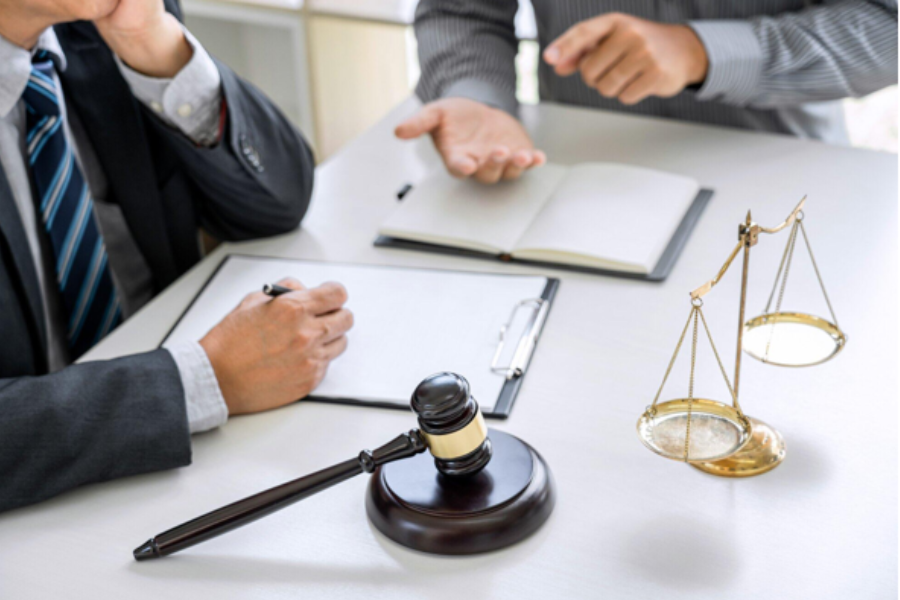Decisions about justice carry great weight. Considerations when deciding to press charges for elder abuse involve more than just facts; they reflect values and care. Choosing the right path can protect those who need it most.
Each choice shapes the future. Deciding to press charges for elder abuse shows the importance of courage and empathy. Taking this step helps address a serious issue, ensuring safety and respect for elders who depend on the strength of others.
In this blog, we will discuss 8 key considerations when deciding to press charges for elder abuse.
1. Evidence of Abuse
When considering pressing charges for elder abuse, gathering solid evidence is crucial. Documentation can include photos, medical records, and witness statements. Collecting evidence strengthens your case and shows the reality of the situation.
Witness testimonies can play a key role in proving allegations. Having multiple accounts can establish a trend of abuse. It is essential to document everything to create a compelling narrative.
Additionally, observing changes in the elderly’s behavior can give insight into their situation. Signs of abuse often manifest as fear or withdrawal. Keeping a journal of these changes may help in legal proceedings.
2. Severity of the Abuse
The severity of abuse significantly affects the decision to press charges. Not all acts are viewed with the same level of seriousness. Different situations can lead to diverse legal repercussions.
Physical abuse may be the most visible but emotional and financial abuse are serious too. Understanding the full impact helps in determining the best course of action. Taking into account the emotional and psychological impact of each situation is also vital.
Minor incidents may not warrant legal action, but they still require attention. Each instance should be evaluated based on its context and outcome. The goal is to protect the elder from further harm and seek justice for any wrongdoing.
3. The Elder’s Wishes
The elder’s wishes should always be a priority when deciding to press charges. Their right to autonomy must be respected, especially if they are capable of making decisions. Open communication is essential to understand their feelings towards the situation.
Some elders may fear retaliation or may wish to avoid conflict. Others might feel ashamed or believe that calling attention to the issue could worsen it. Understanding their perspective helps identify the best support mechanisms.
Legal guardianship can also influence this decision. If a guardian is involved, their opinions must be considered. However, the elder’s voice must be heard in the discussion.
4. Impact on the Elder’s Health
Abuse can have long-lasting effects on an elder’s physical and mental health. It’s important to assess both the immediate and ongoing impacts of their situation. Health professionals should evaluate their condition to detect any unseen damage.
Psychological trauma can often be hidden but is equally serious. Anxiety and depression can arise from abuse, affecting overall well-being. The mental impact can complicate relationships and daily activities, making recovery challenging.
Addressing these health issues should be part of any legal consideration. Providing proper medical care, counseling, or support could significantly improve the elderly’s quality of life. It’s important to prioritize their health while navigating legal options.
5. Potential for Retaliation
Any decision to press charges must consider the potential for retaliation against the elder. Retaliation can take many forms, including intimidation or further abuse. Feeling safe should always be a top priority in such situations.
If the abuser is a family member or close friend, these dynamics complicate matters. Those involved may have conflicting emotions regarding the situation. Support systems must be in place to protect the elderly in case of reprisal.
Legal action can provide safeguards, but it is crucial to prepare for all possible outcomes. A thorough risk assessment should be done to gauge the likelihood of retaliation. This includes planning for emotional and physical safety.
6. Available Legal Support
Finding the right legal support is an essential part of the process. If you live in the area, connecting with a Greenville nursing home abuse attorney could benefit your case. An experienced attorney can help you navigate the complexities of elder abuse laws.
Understanding local laws and resources is critical in these situations. They can offer invaluable advice on how to gather evidence and build a case. Having professional support can ease the burden and fears associated with legal proceedings.
Legal support also includes access to community resources that can assist the elderly. Organizations that assist victims may offer counseling and financial assistance. It’s important to explore these avenues to ensure comprehensive support.
7. The Perpetrator’s Relationship to the Elder
The relationship between the elder and the abuser has a crucial impact on the decision to take action. Abuse often occurs in a familiar context, such as a family member or caregiver. Understanding this dynamic is vital to address the underlying issues effectively.
Close relationships can make it harder for the elder to speak out. They may feel guilt, shame, or worry about repercussions. Analyzing this connection will help frame the decision of whether to press charges.
On the other hand, if the abuser is a caregiver, there may be additional factors to consider. Knowledge of the elder’s vulnerabilities can create an exploitative situation. This highlights the importance of careful consideration when weighing the decision to take action.
8. State Laws and Resources
Understanding state laws related to elder abuse is paramount before taking any legal steps. Each state has different definitions and regulations regarding abuse. Researching these resources can clarify what you need to know to proceed.
Seeking guidance from local advocacy groups can provide valuable information. They can guide you in understanding legal rights and potential resources available. Local organizations often specialize in supporting victims of elder abuse.
Financial considerations are another crucial aspect of this decision. Pressing charges may involve court costs and legal fees. Knowing the potential financial implications helps in planning your next steps effectively.
Deciding to Press Charges: A Step Toward Justice
When deciding to press charges, each choice reflects courage and care. These decisions can safeguard the well-being of elders and bring accountability to those at fault. Every action taken is a vital step toward justice and safety.
Press charges thoughtfully, knowing it can change lives for the better. Ensuring respect and protection for elders requires empathy and determination. This commitment helps to build a future where abuse is not tolerated, and dignity is upheld.
Did this article help you? Browse our blog for more interesting topics.
Stay in touch for more updates and alerts visit: Gossips!




